As an Amazon Associate, I earn from qualifying purchases. In addition, I participate in several other affiliate programs that allow me to earn while I recommend products I love.
Whether you’re an expert baker or a novice, you’ll already know that baking is a science.
The ingredients need to be right, the measurements need to be specific and the process, whether stirring, mixing or folding needs to be precise.
One of the most important elements in baking is the base of your recipe, that is, the all important flour.
You may be surprised to learn that there are many varieties of flour that can be used to bake, and they can’t all be used interchangeably.
Once you’ve mastered the types of flour to use, discover the answers the common cake baking problems and our recommendations for essential cake baking tools!
Here are 12 types of flour used in baking.
1. All Purpose Flour
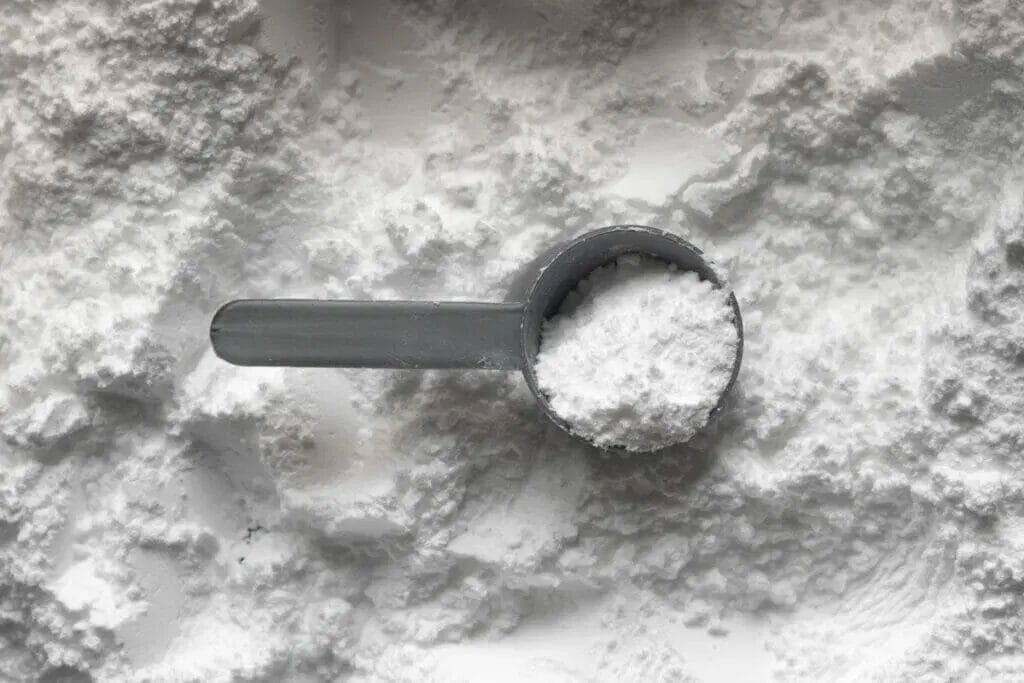
All purpose flour is arguably the most common type of flour used to bake.
As a refined flour, it is considered amongst the softest types of flour and can be used in most types of sweet and savory baking, from cakes, muffins, biscuits and pizza dough.
Whilst all purpose flour is derived from whole wheat, it is usually bleached white which gives it a clean, light appearance, unlike other darker flours such as rye or whole wheat.
The soft texture and light appearance makes all purpose flour one of the most practical and versatile types of flours to have on hand.
2. Self Rising

Self rising (also known as self raising) flour is similar to all purpose flour but with the addition of a leavening agent.
This makes self raising flour similarly versatile to use for most baking projects, both sweet and savory.
However it is important to note that as self rising flour already has added salt and baking powder, be careful not to add extra leavening agents to your recipe.
Having too much baking powder can lead to overly leavened baked goods, which can result in a tough and dense texture.
3. Whole Wheat Flour
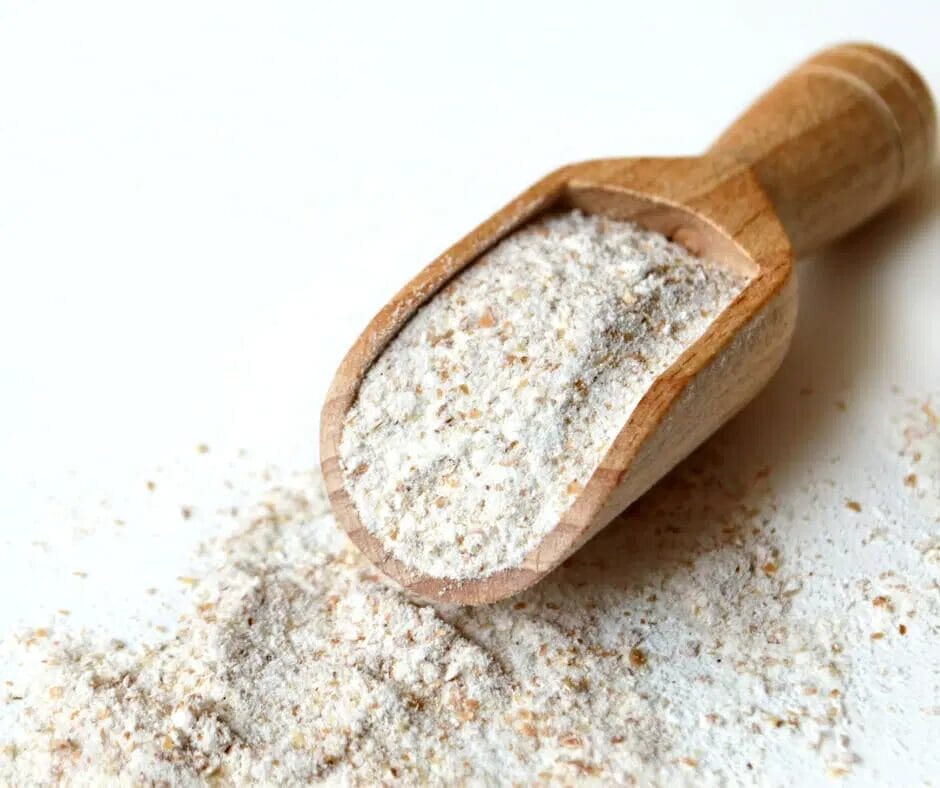
Whole wheat flour is an unrefined, rich in fiber and dense flour that is commonly used in south Asian cuisine for making flat breads and loaves.
Made from hulled red wheat grain, this type of flour is amongst the highest in protein, with approximately 13 grams of protein per 100 grams of flour.
It is not recommended to substitute all purpose or other refined flours for whole wheat, as the dense nature of whole wheat flour requires special attention, including more hydration.
4. Bread Flour
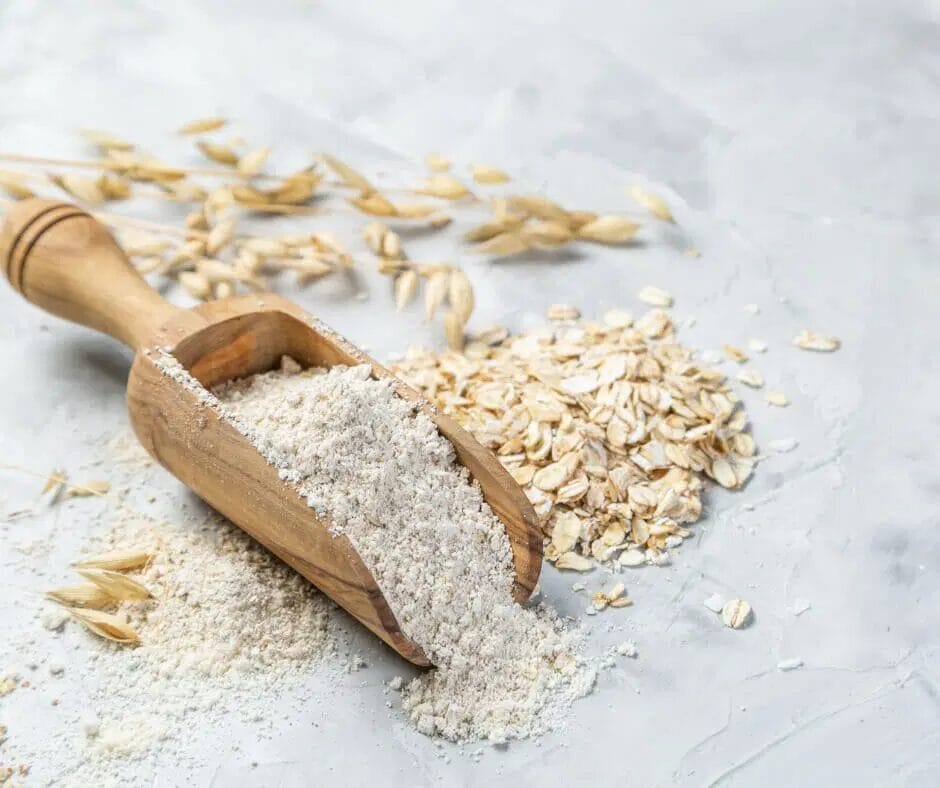
For other types of flour for bread, bread flour unsurprisingly makes the list.
Bread flour is similar to whole wheat flour as both are high in protein and made from red wheat grain, however bread flour is typically bleached white.
The high protein content, ranging between 12 to 14 grams per 100 grams of flour, gives it the necessary elasticity that is needed for the dough to rise with the ideal chewy texture.
Note that bread flour requires a lengthy period of kneading in order to develop the gluten that gives the bread its chewiness.
5. Almond Flour

Somewhat similar to almond meal which is more coarse in texture, almond flour is made from peeled and ground up almonds, which have been turned into a fine, soft texture.
Given the flour is made entirely of almonds, almond flour is also extremely high in protein, and requires a high liquid content to keep the flour moist.
Almond flour is a great gluten-free flour and can be used to make desserts such as brownies, cookies and bread.
6. Oat Flour
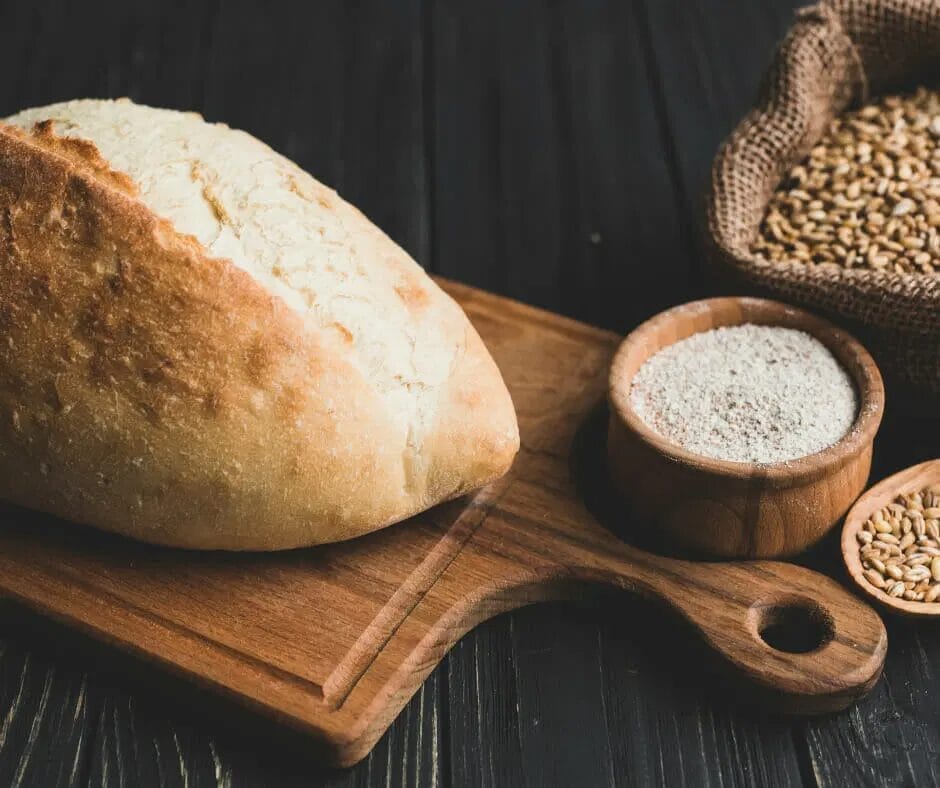
Oat flour is one of the most popular types of flour due to its versatility and affordability.
If you don’t have a pack of oat flour in your pantry, it’s easy to whip it up in your food processor by simply blitzing rolled instant oats until you achieve a flour-like consistency.
You can also use steel cut oats however they will result in your baked goods having a nuttier taste.
Oat flour is ideal to use for muffins, banana bread, pancakes and breakfast bars.
7. Tapioca Flour
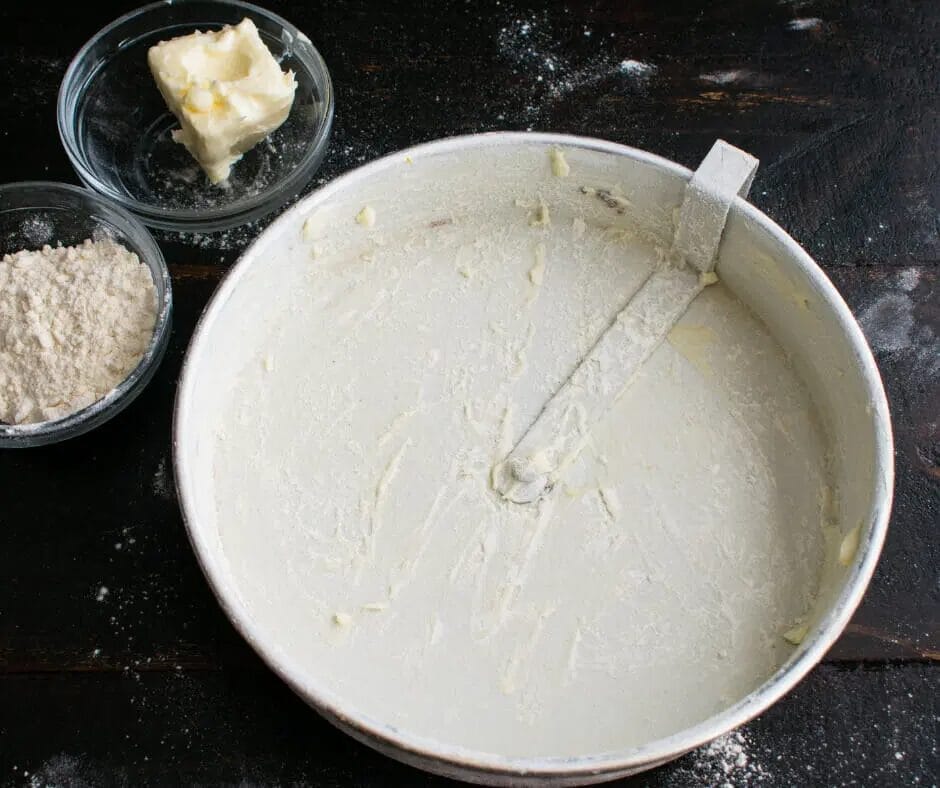
Tapioca Flour is derived from the starch in the root of the cassava or yucca plant.
This is a lesser known flour, but as it is gluten free, it can be a great option for those on a gluten free diet.
Similar to corn starch (albeit derived from a different plant to cornstarch, which comes from, you guessed it, corn), tapioca flour can be used as a thickening agent for gravies and for adding crispiness to pizza or pie crusts.
8. Cake Flour
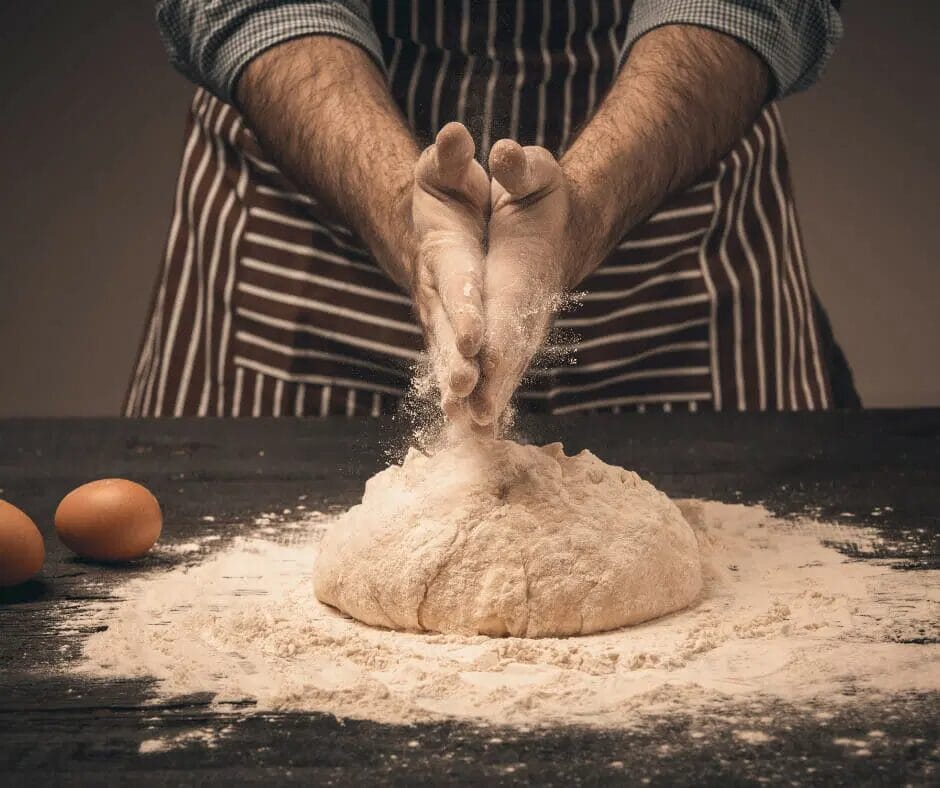
If you’re looking for the best types of flour for cake, cake flour is an ideal choice.
Cake flour is made from very finely milled and bleached wheat, giving it a fine, light and soft consistency.
It has amongst the lowest protein content of all types of flour, which gives it less of an ability to form gluten bonds.
This is what gives cake flour the softer and more airy texture.
Because cake flour also absorbs liquid and sugar more than other types of flour, it’ll also help to keep your cake moist for longer.
9. Pastry Flour
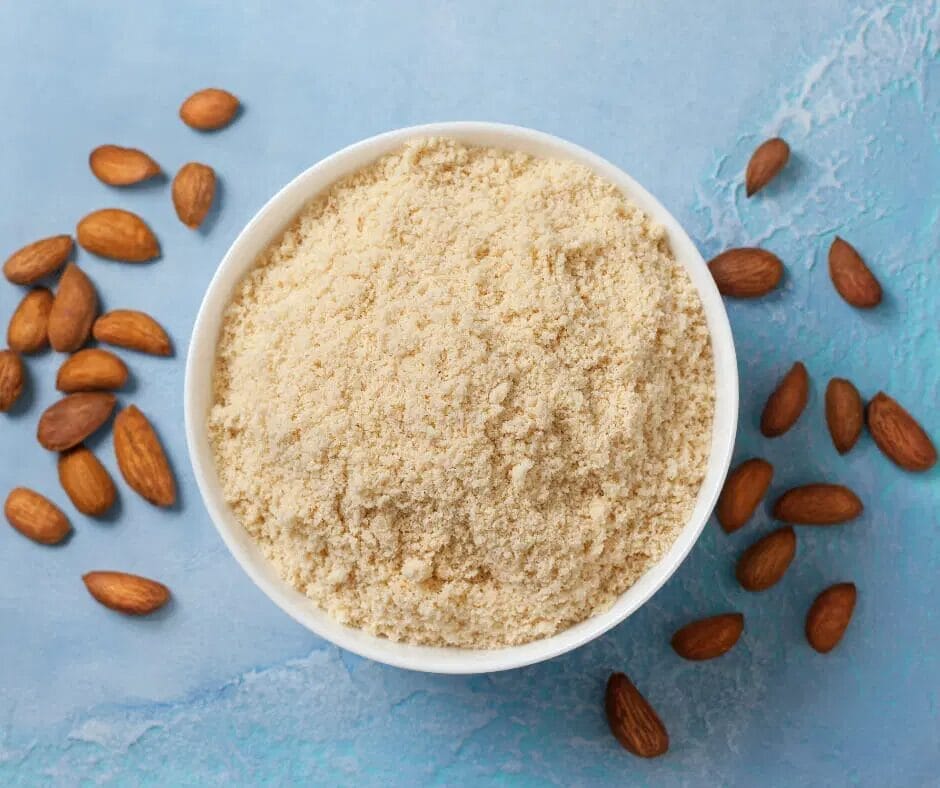
Somewhere between cake flour and all purpose flour is pastry flour.
With a protein content of around 9 grams per 100 grams, pastry flour is one of the most useful types of flour for making flaky goods, such as pastries, pie crusts or pound cakes.
The difference between pastry flour and all purpose flour is that pastry flour is milled to a finer texture, which helps it create deliciously flaky crusts and tender biscuits.
10. ‘00’ Flour
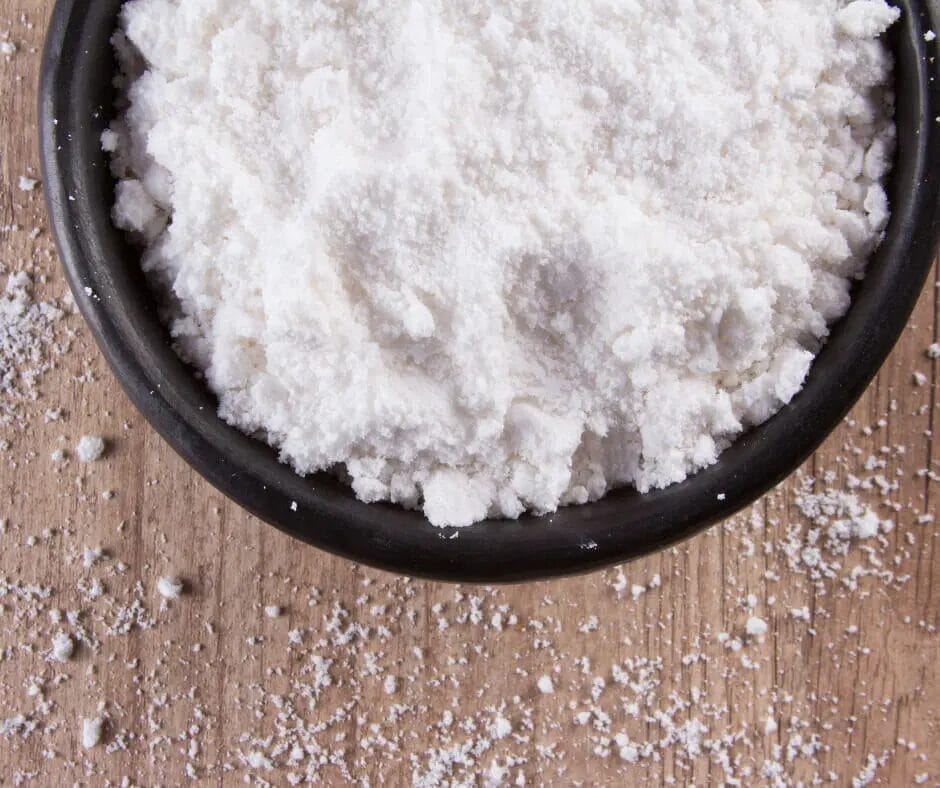
‘00’ or double zero flour is an Italian style of flour milled from hard durum wheat, unlike more typical red wheat flours.
Double zero flour is extremely fine in texture, although the gluten bonds are less elastic, giving it a less chewy texture than all purpose flour.
‘00’ flour is ideal for baking pizza dough or making homemade pasta.
11. Semolina Flour
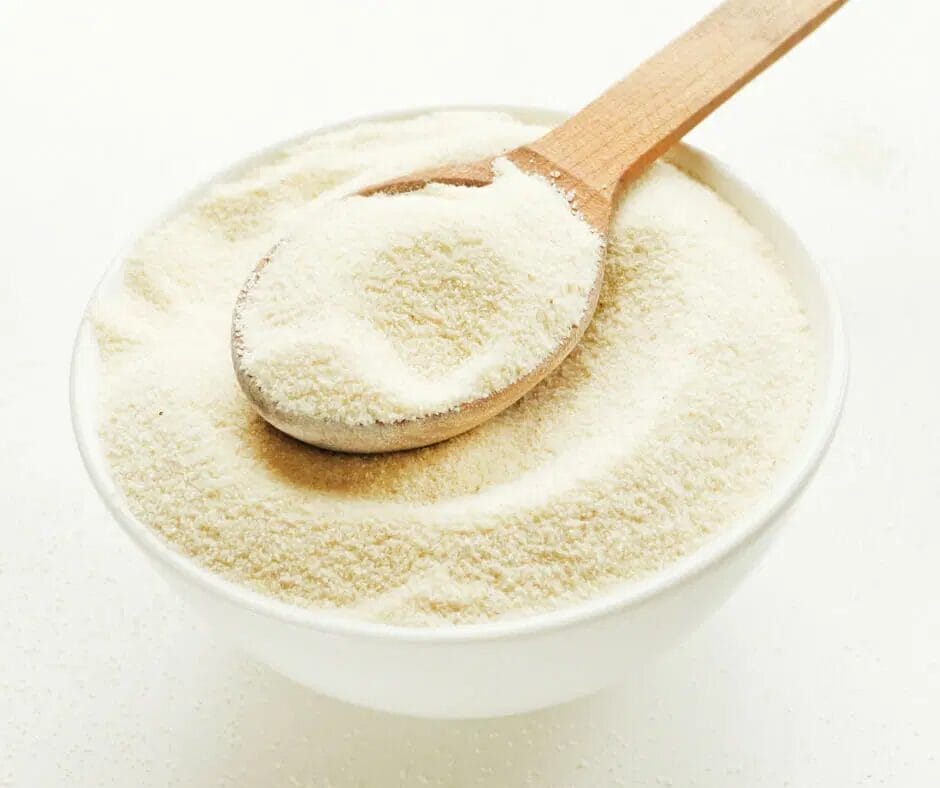
Similar to ‘00’ flour, semolina flour is also made from durum wheat.
However it is high in both gluten and protein content, with a slightly more coarse texture, yellow appearance and nutty flavor.
Whilst it is more commonly used in making pasta and crepes, it can also be used for baking bread, cakes and slices.
12. Rye Flour
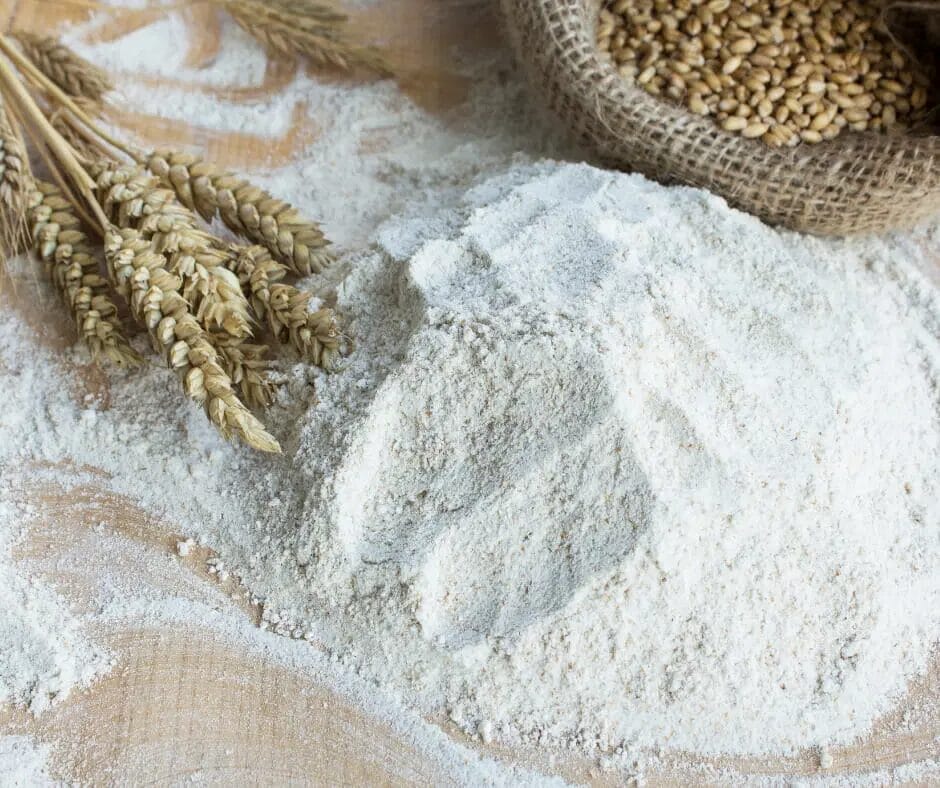
If you’re looking to bake bread, one of the different flours you can use is rye flour.
Milled from rye kernels and with a deep nutty flavor, rye can be a preferable type of flour for bread for those who want less gluten in their diet.
There are different types of rye flour, from light to dark rye, with the darker the color, the more nutty and dense the bread.
